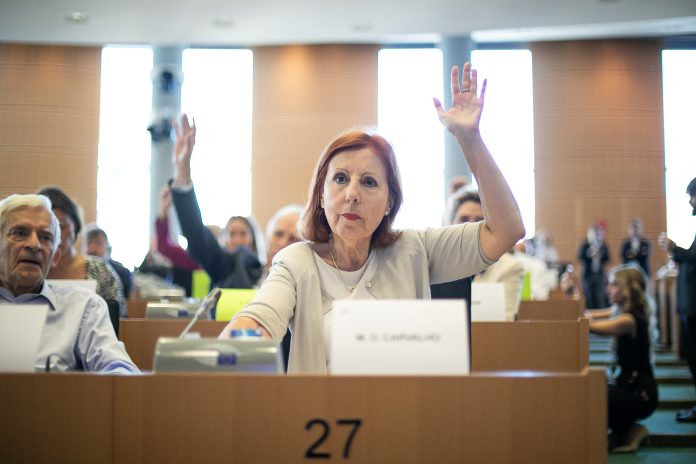The legislation adopted by the Industry, Research and Energy Committee on Thursday introduces new measures to better protect the EU’s wholesale energy market, making the energy bills of European households and businesses more secure from potential short-term market price fluctuations.
In response to the energy crisis exacerbated by Russia’s invasion of Ukraine, the European Commission introduced the legislative proposal along with a reform of the Electricity Market Design on 14 March 2023. The proposal updates the Regulation on Wholesale Energy Market Integrity and Transparency (REMIT), established in 2011 to combat insider trading and market manipulation, ensuring transparency and stability in the EU Energy markets.
The law introduces a closer alignment to EU rules on financial markets’ transparency, covers also new trading practices, such as algorithmic trading, and strengthens provisions on reporting and monitoring to protect consumers from market abuses.
Timely and transparent information dissemination
In their amendments, MEPs reinforce the EU dimension and the supervisory role of the Agency for the Cooperation of Energy Regulators (ACER). In cross border cases, if the Agency detects a breach of certain prohibitions and obligations, it would be able to take various actions, e.g. to demand the end to the breach, issue public warnings and impose fines.
Upon request from a national regulatory authority, ACER can provide operational assistance pertaining to investigations. MEPs also decided to integrate in the updated legislation the mechanisms that oversee how the price of liquefied natural gas (LNG) is determined.
“In our work, we were guided by three main principles: legal coherence and transparency, a strengthened European dimension and a reinforced market”, said lead MEP Maria da Graça Carvalho (EPP, PT). “In our report, we have also introduced improvements in transparency and monitoring practices, paying attention not to overburden smaller companies, and we have underlined the need to strengthen the collaboration between financial and energy authorities to prevent market abuses and speculation”, she added.
The draft negotiating mandate was backed by 53 MEPs, 6 voted against and 2 abstained. MEPs also voted to open negotiations with Council by 50 votes to 10 against, and one abstention – a decision which will have to be greenlighted by the full House during the 11-14 September plenary session.

